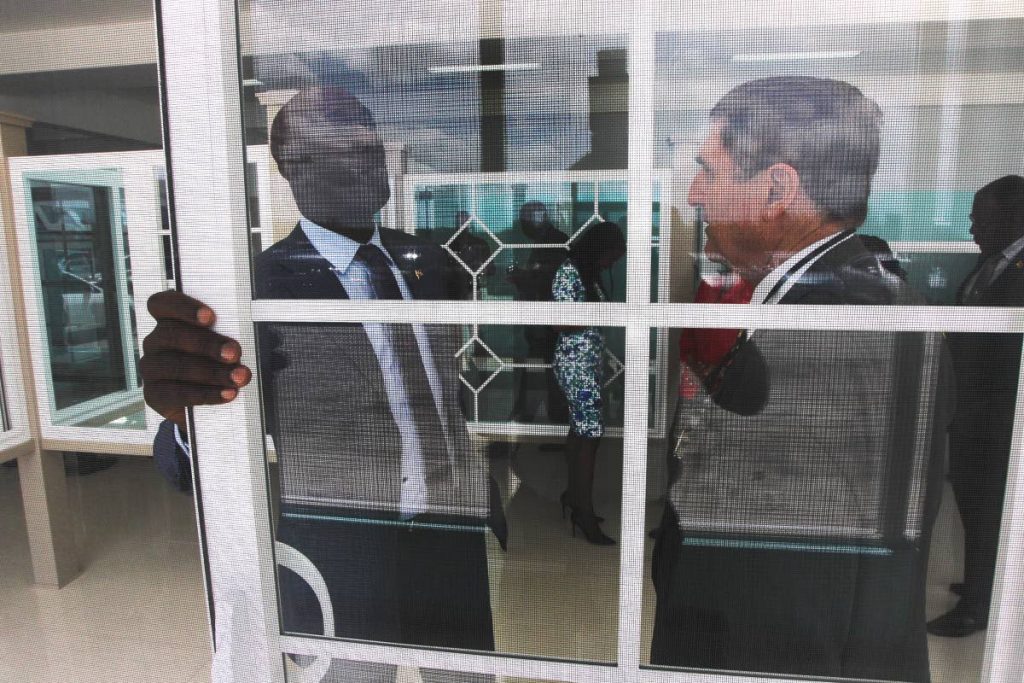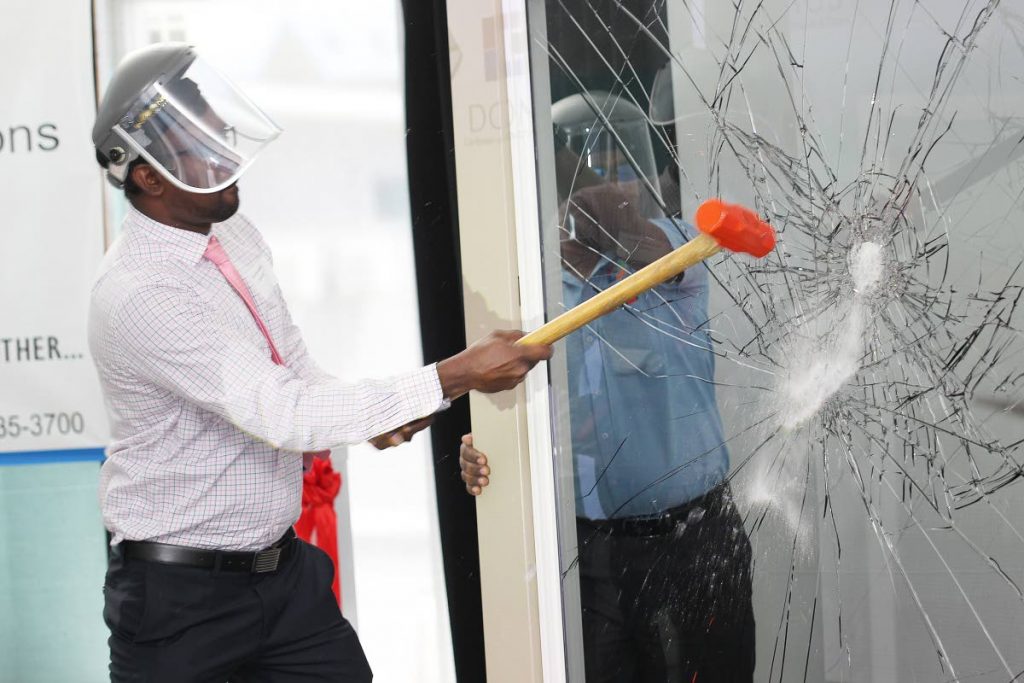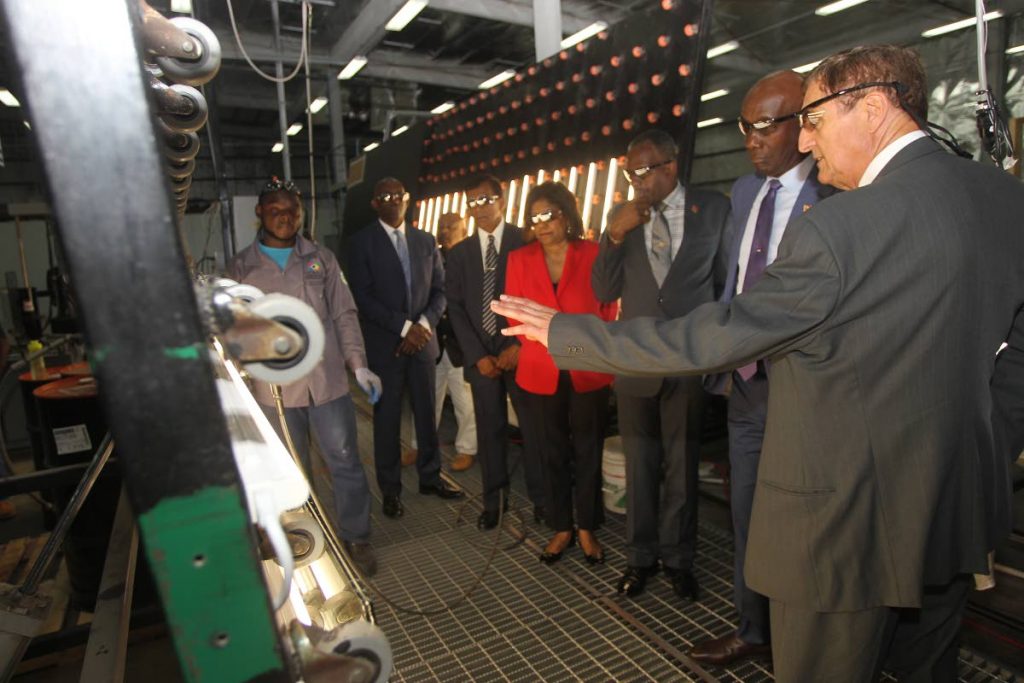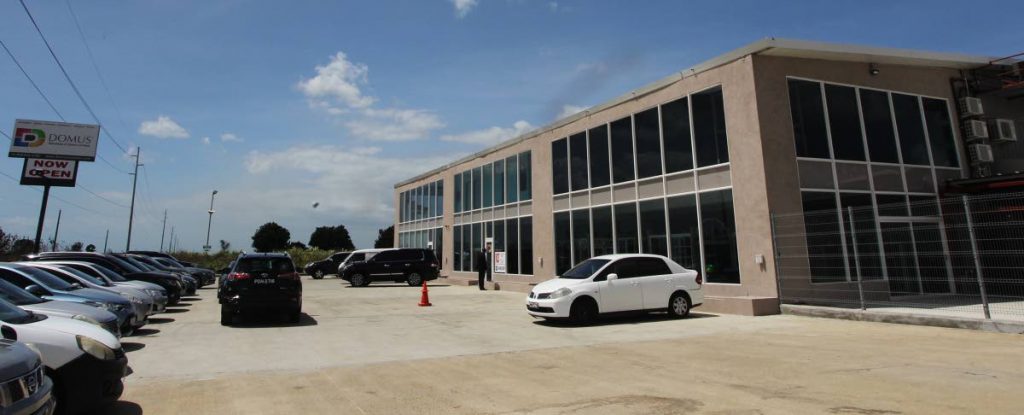'Trinis don't have to live in cages'

Trinidadians don't need to live in houses that resemble burglar-proofed cages, Terrance Ortt, chief executive of Domus Windows & Doors Ltd, said at the company's opening ceremony last week. Instead, he suggested his company's unplacticised polyvinyl chloride (uPVC) products as a more versatile option to home safety and security. The $50 million factory and showroom is located at 57 Factory Road, Chaguanas.
“There is a huge market gap to fill. That is why I started the company in the first place,” Ortt said.
He even admitted his surprise discovering that in TT, homeowners chose to live in burglar-proofed rooms when uPVC windows and doors were not only designed to withstand hurricanes, but can also stop a 35-pound missile fired from a cannon at 35 miles per hour (mph).
“It’s surprising to me to see the amount of burglar-proofing around, but Trinis really don’t need to live in cages. There are other options and given the security concerns in Trinidad, there is a number of high security features available, including Domus Security Laminate glass, which provides security without a homeowner feeling that he or she is living in a burglar-proofing prison.”
uPVC is a modified version of popular plastic polyvinyl chloride (PVC), one of the most versatile polymers in the world. Regular PVC is a strong and lightweight plastic and is made softer and more flexible by adding plasticisers. uPVC has no added plasticisers, and so are sturdier and more rigid than PVC.

Ortt said uPVC dominated the European and North American market – two-thirds of all windows and doors sold in Europe are uPVC-based, while in North America the market ranges 60 to 90 per cent. In the Caribbean, he said, the market share is less than ten per cent, with the only exception being Barbados, where it is predominately used in the construction industry.
“And this despite the fact that uPVC is ideally suited for the Caribbean, where it is designed to withstand high humidity, intense sun and last a lifetime without maintenance," he said.
The laminate glass used by Domus, for example, is more than twice as thick as that normally supplied in Trinidad and provides extremely high intrusion resistance – the same glass used in the company's hurricane and missile testing.
He noted the company also supplied burglar-proofing for those who want “highly visible intrusion resistance,” and Domus supplies burglar proofing made from factory-painted aluminium, which does not rust or require constant painting.

“Our products focus on style, aesthetics and customer appeal but we also want superior product performance in the Caribbean and have more than 1,000 configurations. We do custom sizes, which is important for developers, at no additional cost, no need for painting, maintenance and we provide a 20-year guarantee.”
He said the windows also feature fusion-welded corners that never leak.
And regarding the hurricane threat, he said Domus’s products are independently tested and “meet or exceed either the American Standard for the Testing of Materials (ASTM), and Miami-Dade and/or Florida building code impact test protocols.
“All Domus hurricane-rated products are tested to withstand minimum wind speeds of 173 mph,” he said.

Ortt, an engineer from Canada, founded Domus in 2006. His first foray into the Caribbean market was in St Kitts, where he opened a factory in early 2007.
By 2011, the company had outgrown its start-up factory and while visiting Trinidad, he met with businessman Arthur Lok Jack, who outlined the advantages of manufacturing in Trinidad. Lok Jack directed Ortt to InvesTT, who facilitated the company's expansion into Trinidad.
In 2018, manufacturing operations were transferred on a phased basis from St Kitts to the Trinidad factory, which is now fully operational.
Ortt said that the state-of-the-art factory has been configured to produced the company's broad product line with "optimal quality and efficiency," aided by a highly sophisticated computer integrated manufacturing system.
Domus’s inventory includes exterior windows, doors, handrails, pergolas (a type of gazebo), decking, fencing and demerara windows.
Domus has undertaken a wide variety of projects in TT, including multi-residential projects at West Hills, Cara Court, Porto, Enclave, Montrose Place, Pine Place, East Lake, and Legacy.
The company’s products are also used at TT’s newest police stations, Mayaro Fire Station, Courts Freeport store and during the renovation of the Magdalena Grand hotel in Tobago.


Comments
"‘Trinis don’t have to live in cages’"